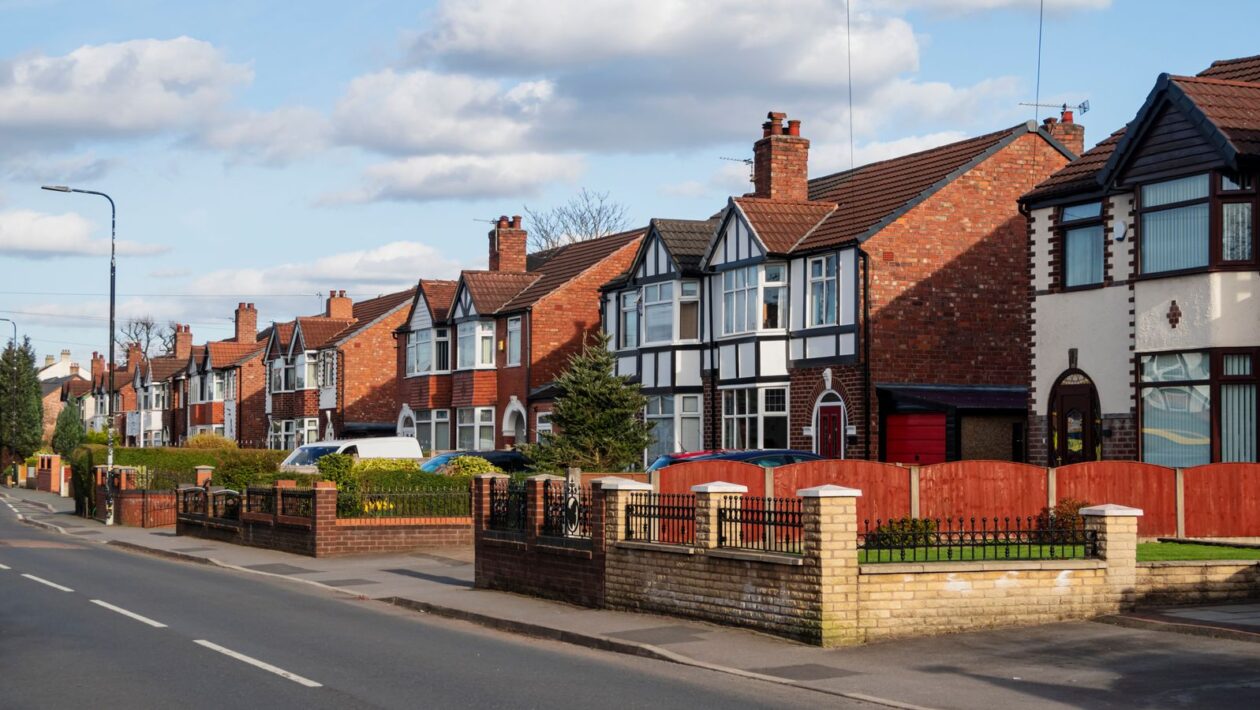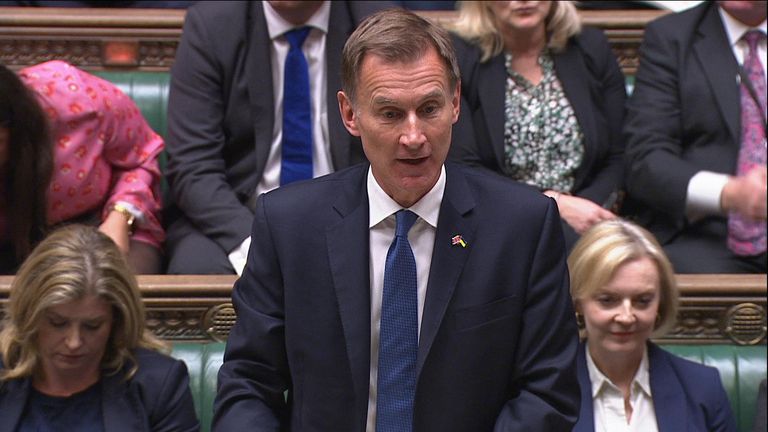[ad_1]
Mortgage lending fell as the number approved didn’t rise as high as expected, according to Bank of England (BoE) data.
Mortgage approvals for house purchases fell to 66,800 in September from 74,400 in August – reflecting rising interest rates to battle inflation and the start of the fallout from the mini-budget, according to analysts.
A large chunk of mortgage products were removed or priced upwards after the Growth Plan was unveiled by former chancellor Kwasi Kwarteng on 23 September to a backlash from financial markets.
It reflected, what they saw, as the lack of a credible economic strategy within the-then Liz Truss-led government, with investors demanding a greater interest rate to hold UK government debt.
Successive rises in Bank rate have also pushed up mortgage rates since last December.
The BoE data also showed that the annual growth rate for consumer credit, which includes borrowing using credit cards, personal loans, overdrafts and car finance, accelerated slightly to 7.2% in September from 7.1% in August.
Net unsecured consumer credit rose by £745m, the smallest monthly increase since December 2021 and weaker than economists had expected given the pressure on household budgets more widely from the cost of living crisis.
Ashley Webb, UK economist at consultancy Capital Economics, said: “September’s money and credit figures point to further signs that consumers have been become more cautious in response to the weakening economic outlook.”
The Bank is due to raise the cost of borrowing again this week despite the looming threat of recession.
Governor Andrew Bailey had warned of a faster rise in Bank rate before a series of government U-turns – and the collapse of the Truss premiership – undid some of the market damage inflected by the mini-budget.
Nevertheless, financial markets still expect a 75 basis points rise to 3% on Thursday.
Economists largely predict a 50 basis points hike.
Commentators have warned that the era of cheap home loans is now at an end as a result of the chaos.
Alice Haine, personal finance analyst at investment platform Bestinvest, said: “The panic in the market in the first three weeks of September might have been driven by rising interest rate expectations – with the Bank of England increasing the base rate by 50 basis points on September 22 to 2.25% – but the situation escalated dramatically when former chancellor Kwasi Kwarteng unveiled his radical fiscal plan of unfunded tax cuts a day later.
“The mini-budget spooked the financial markets.”
She said the “mortgage pain is far from over”, adding that those with deals expiring soon will have difficult decisions to make.
The latest data from Moneyfacts showed average two-year fixed mortgage costs at a rate just under 6.5%.
It had stood at just over 4% at the beginning of September.
Mark Harris, chief executive of mortgage broker SPF Private Clients, said: “With another interest rate rise likely this week, borrowers concerned about their mortgage should seek advice from a broker to find out what options are available.”
[ad_2]


